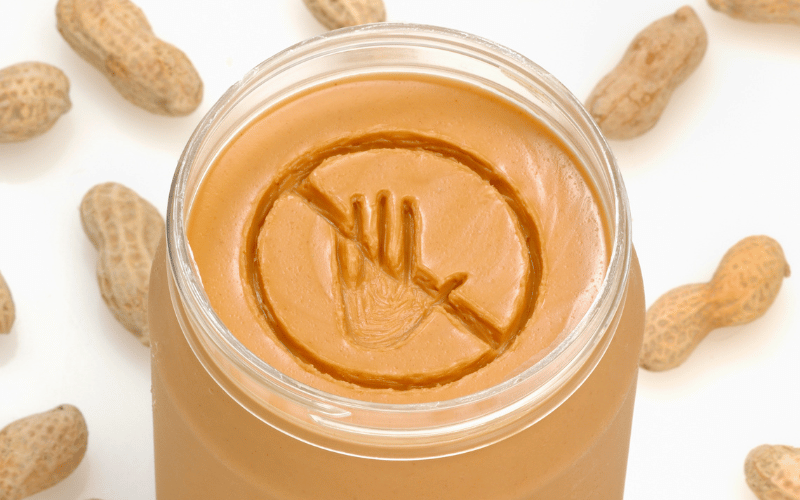Peanut allergies can be a major concern for parents, as they are one of the most common and severe food allergies in children. In this article, we’ll explore the ins and outs of peanut allergies in kids, including the causes, symptoms, diagnosis, treatment, and prevention.
Understanding Peanut Allergies in Kids
Peanut allergies occur when the immune system mistakenly identifies peanuts as a harmful substance and launches an attack against them. This allergic reaction can range from mild to life-threatening and affects approximately 2% of children.

Signs and Symptoms of Peanut Allergies
When a child with a peanut allergy consumes or comes into contact with peanuts, they may experience a range of symptoms, such as:
- Itchy skin, hives, or redness
- Swelling of the face, lips, or tongue
- Difficulty breathing or wheezing
- Stomach pain, nausea, or vomiting
- Dizziness or fainting
In severe cases, a child may experience anaphylaxis, a life-threatening reaction that requires immediate medical attention.
Diagnosing Peanut Allergies in Children
If you suspect your child has a peanut allergy, consult with an allergist or pediatrician. They will perform a series of tests, including a skin prick test, blood test, or oral food challenge, to confirm the diagnosis.
Managing and Treating Peanut Allergies
There is no cure for peanut allergies; however, parents can take several steps to manage their child’s allergy:
- Educate your child about their allergy and the importance of avoiding peanuts and products containing them.
- Read food labels carefully to identify potential allergens and hidden sources of peanuts.
- Create an allergy action plan with your child’s healthcare provider, including instructions on administering emergency medication such as an epinephrine auto-injector (EpiPen).
- Inform caregivers, teachers, and other adults in your child’s life about their allergy and the necessary precautions.
- Encourage your child to carry their EpiPen and wear a medical identification bracelet or necklace.
Preventing Peanut Allergies: What We Know So Far
Research has shown that early introduction of peanuts in an infant’s diet may help reduce the risk of developing peanut allergies. Consult your pediatrician for guidance on when and how to introduce peanuts to your child safely.
Living with a Peanut Allergy: Practical Tips
Children with peanut allergies can lead normal lives by following some practical guidelines:
- Teach your child to politely refuse food from others unless they are sure it’s safe.
- Keep safe snacks on hand for your child to enjoy at parties or events where peanuts may be present.
- Be cautious when dining out, as cross-contamination can occur in restaurant kitchens.
- Educate your child’s friends and their parents about the allergy and the necessary precautions.
Frequently Asked Questions about Peanut Allergies in Kids
1. Can a child outgrow a peanut allergy?
While it is possible for some children to outgrow their peanut allergy, this occurs in only about 20% of cases. Regular allergy testing with an allergist can help determine if your child’s allergy has changed.
2. How can I tell if a food product contains peanuts?
Always read the ingredients list on food labels carefully. Look for obvious mentions of peanuts, but also be aware of terms like “groundnuts,” “arachis oil,” and “hydrolyzed vegetable protein,” which can indicate the presence of peanuts.
3. What are some common foods that may contain peanuts?
Peanuts can be found in various food items, including baked goods, candy, cereal, sauces, and ice cream. They may also be present in seemingly unrelated products like pet food and cosmetics.
4. Can my child develop a peanut allergy even if they’ve never had peanuts before?
Yes, it is possible for a child to develop a peanut allergy even if they have never consumed peanuts. The allergy may be triggered by exposure to peanut proteins in the environment or by consuming trace amounts of peanuts in food products.
5. Can a child with a peanut allergy have a reaction from touching or smelling peanuts?
While it’s uncommon, some children with severe peanut allergies may experience a reaction from touching or inhaling peanut particles. However, these reactions are typically less severe than those caused by ingestion. It’s essential to take precautions to minimize exposure in such cases.
Conclusion
Peanut allergies in kids can be challenging for both parents and children. By staying informed and taking necessary precautions, you can help ensure your child’s safety and well-being. Regular consultations with your child’s healthcare provider, creating an allergy action plan, and educating others about your child’s peanut allergy will contribute to a safer environment for your child. By following these guidelines and maintaining open communication with your child, you can help them navigate life with a peanut allergy confidently and responsibly.